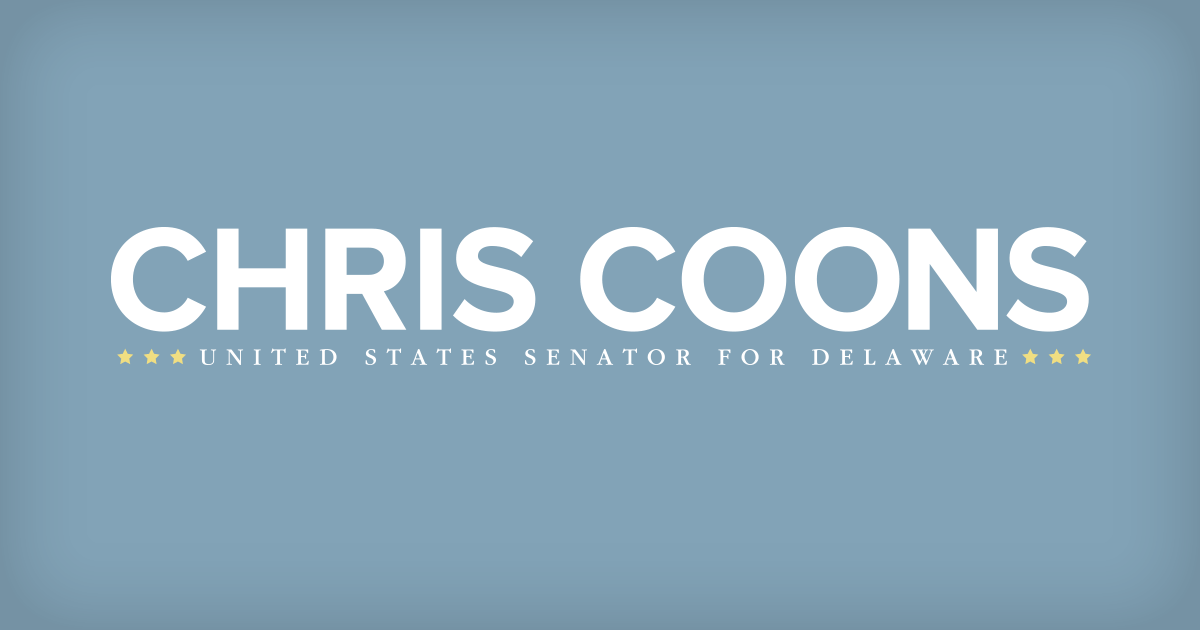Source: United States Senator for Delaware Christopher Coons
WASHINGTON – U.S. Senators Chris Coons (D-Del.), John Cornyn (R-Texas), Thom Tillis (R-N.C.), and Sheldon Whitehouse (D-R.I.) today introduced legislation to enhance public access to universal safety standards and codes. The Protecting and Enhancing Public Access to Codes (Pro Codes) Act of 2023 ensures safety standards do not lose copyright protection when they are incorporated into law by name, as long as they are accessible for free on a publicly available website.
“Universal standards become universal for a reason: because they work. People across Delaware are protected from electrical and fire hazards because of standards developed by experts in the field,” said Senator Coons. “At no cost to the taxpayer, nonprofit organizations use a transparent process to develop safety standards for the public that benefit our communities and promote reliability and collaboration among industries. I’m proud to introduce this bipartisan legislation to support the nonprofits by ensuring that they receive the credit and benefits for their important work while maintaining public access to the vital information contained in standards.”
“For years, experts developed safety standards that protect Americans from fires and electrical hazards, and it is crucial that these organizations can maintain their copyright protections while making these guidelines available to the public for free,” said Senator Cornyn. “This legislation protects copyrights while allowing these groups to provide these often life-saving safety procedures at no cost to the taxpayer.”
“Standards development organizations (SDOs) draft important safety standards that protect the American people from things like fire and electrical hazards, and their standards should continue to be eligible for copyright protection,” said Senator Tillis. “I believe the Pro Codes Act strikes the right balance to ensure those developing safety standards are able to afford to do their crucial work, while providing the public with free digital access to these standards.”
Nonprofit SDOs use significant resources to bring stakeholders together and develop effective, impartial, and consensus-based standards on a wide array of safety issues at no cost to taxpayers. SDOs fund their work developing these standards by selling copyright-protected copies of their standards to firms that use them in their business, including development and construction. However, federal courts have endangered SDO’s copyright protections by ruling that SDOs lose the benefit of copyright protection for their safety standards when they are incorporated by reference into law by federal, state, and local governments. The Pro Codes Act supports SDOs and encourages them to continue providing an important public service at no cost while ensuring SDOs retain copyright ownership of their standards.
Senator Coons is the Chair of the Judiciary Committee’s Intellectual Property Subcommittee.
“Safety standards protect lives and property, and our country’s exceptional system for developing them is independent, consensus-based and doesn’t cost the taxpayer a dime. That’s why the legislation introduced by Senators Coons, Cornyn, Tillis, and Whitehouse is so critical, and we’re enormously grateful for their leadership on this issue. We need Congress’ support to ensure organizations like ours can continue developing standards that save lives, make communities more resilient, and foster economic growth for generations to come, as we have for more than 125 years,” said Jim Pauley, President and CEO of the National Fire Protection Association.
“The Pro Codes Act is a clear win for standards development organizations, lawmakers, scholars, and the public. It would ensure that codes and standards continue to be protected against infringers while guaranteeing that the public has access to them when they are incorporated by reference into law. We thank Senators Coons, Cornyn, Tillis, and Whitehouse for introducing this important legislation,” said Keith Kupferschmid, CEO of Copyright Alliance.
“The rigorous, consensus-based standards developed by ASHRAE and other SDOs are essential to public health, sustainability, safety, and security,” said 2022-23 American Society of Heating, Refrigerating, and Air-Conditioning Engineers (ASHRAE) President Farooq Mehboob, Fellow ASHRAE. “ASHRAE proudly supports this legislation and will continue our work to provide vital standards for adoption or incorporation by reference – another step towards realizing our vision of a healthy and sustainable built environment for all.”
“Standards development organizations work tirelessly to enhance community resilience and sustainability as well as to protect the health and safety of communities around the world through the development of life safety codes and standards,” said Gabriel Maser, Senior Vice President of Government Relations for Code Council. “Our standards development system costs taxpayers nothing and has worked efficiently for over 125 years. The advancement of the Pro Codes Act is essential towards protecting this transparent and balanced system, the value of which is well recognized in the U.S. and abroad.”
“Since IAPMO’s founding nearly a century ago, promoting public health and safety has been at the center of our work. We applaud Senators Coons, Cornyn, Tillis, and Whitehouse for introducing the Pro Codes Act, which will help ensure that the public-private partnerships critical to keeping our homes and offices safe will continue in the future. The drinking water we rely on in our buildings is protected by rigorous codes and standards, which IAPMO helps create. With a growing list of challenges threatening the resiliency of our water systems, it is essential that the intellectual property of these codes and standards remain protected so that our communities can continue to benefit from the safety, innovation, and efficient embedded within,” said Dain M. Hansen, Executive Vice President for Government Relations, The International Association of Plumbing and Mechanical Officials (IAPMO) Group.
A one-pager on the Pro Codes Act is available here.
###
